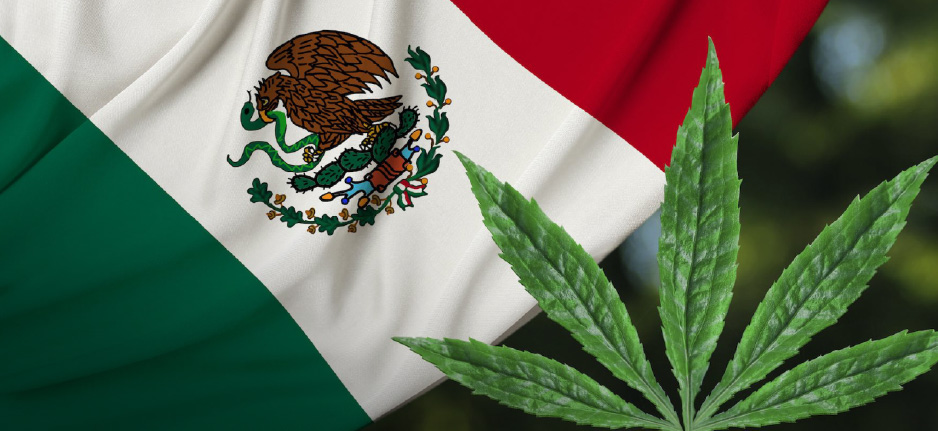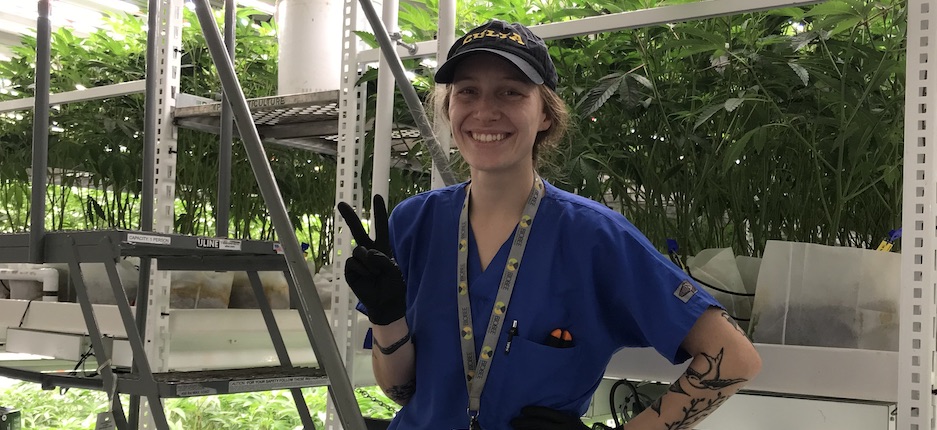Editorial note: This article was originally published on the CULTA blog in 2021.
Currently, Mexico is the world’s fourth-largest producer of cannabis. According to data from the UN and the DEA, Mexico produces over 25,000 tons of cannabis a year, and about 500,000 people are involved in the cannabis industry in the country. It should come as no surprise, then, that Mexico has been making major strides towards cannabis legalization, with lawmakers in Mexico approving a bill to legalize recreational cannabis just last month.
The 316-to-129 vote came more than two years after the Mexican Supreme Court ruled that the country’s ban on recreational cannabis was unconstitutional and more than three years after Mexico legalized medicinal cannabis. Join us as we dive into cannabis reform in Mexico, from decriminalization in 2009 to 2021’s groundbreaking legislation.
2009 Decriminalization
Mexico decriminalized the possession of small amounts of cannabis and other drugs in August of 2009. President Felipe Calderon said the change would allow Mexican law enforcement to focus on major drug traffickers instead of minor consumers, though minor drug possession was already widely tolerated by the police before decriminalization.
Under the new law, anyone caught with less than five grams of cannabis was advised to seek free drug rehabilitation rather than be arrested or fined.
2015 Ruling on Growing Cannabis
This 2015 ruling was widely touted as the beginning stages of cannabis legalization in Mexico. The vote declared that individuals should have the right to grow and distribute cannabis for personal use, and the court voted 4-1 that prohibiting people from growing the drug for consumption went against their constitutional rights, as it violated “the human right to the free development of one’s personality.”
Though the Supreme Court ruled that only four individuals from the Mexican Society for Responsible and Tolerant Personal Use (SMART) would be permitted to grow and consume their own cannabis (and didn’t strike down existing laws), it did lay the groundwork for future legal actions that could ultimately legalize recreational cannabis in the country.
2017 Limited Medical Legalization
Although Mexican President Enrique Pena Nieto was previously opposed to legalizing cannabis, he signed a bill into law in 2017 that made medical cannabis legal in the country. The bill was overwhelmingly approved by Mexico’s Congress and officially classified cannabis as a “therapeutic” drug -- as long as it contained less than 1% THC.
After the bill was passed, the Mexican government began leaning on Mexico’s Ministry of Health to draft and implement regulations and oversee research programs that studied cannabis’ impact on patients. This research would later be used as fodder in legalization efforts for recreational use.
2018 Supreme Court Ruling
In 2018, the Supreme Court ruled (for the fifth time!) that prohibiting the recreational use of cannabis in Mexico was unconstitutional. Though this wasn’t full legalization, the ruling mandated that the Mexican government move to formally legalize cannabis within the next 90 days. Of course, the deadlines kept getting extended, with a final extension of December 15, 2020.
Since this was the fifth time the court ruled in favor of recreational cannabis, it set a precedent across the country. Although the law still remained in effect, it could no longer be enforced -- anyone with charges could cite the ruling and demand their charges be thrown out.
March 2021 Legislation
On March 20, 2021, Mexico legalized the production of cannabis for industrial, medical, and recreational purposes. At the time, the measure was expected to sail through the Senate before landing on the desk of President Andrés Manuel López Obrador, who has signaled support for legalization. Unfortunately, the legalization bill could face new delays after top Senate lawmakers raised concerns about revisions made in the lower body. Here’s the latest on that. Regardless, lawmakers seem hopeful for full legalization.
Under the proposed law, anyone over the age of 18 will be able to purchase and possess less than 28 grams of cannabis. Possession of a higher amount (as long as it’s under 200 grams) is subject to a fine of $500. Possession of more than 200 grams can carry a six-year prison sentence. Adults cannot smoke in front of their children or in public, and having more than eight plants in your home would be punishable by jail time. Unfortunately, the law does nothing to address the widespread pain that decades of militarized enforcement have caused, which activists throughout the country continue to fight for.
If passed, Mexico could soon become the largest legal cannabis market in the world.
How to Legalize Cannabis in Your State
Most cannabis legalization has been the result of grassroots efforts by people just like you. If you want to change cannabis laws in your state, here’s how you can help:
- Educate yourself about the existing local laws where you live.
- Study states (and countries) that successfully legalized recreational cannabis.
- Connect with cannabis advocates in your community.
- Write, call, and lobby your lawmakers (both on a state and federal level.)
- Encourage people to join you by sharing news and updates about legalization efforts.
- Stay informed and, most importantly, VOTE!
Not only does CULTA support decriminalization efforts, but we work closely with nonprofits like the Last Prisoner project to support cannabis criminal justice reform on a federal level. We believe that anyone who profits from the legal cannabis industry must also work to rebuild the lives of those who have suffered from the effects of cannabis criminalization.




